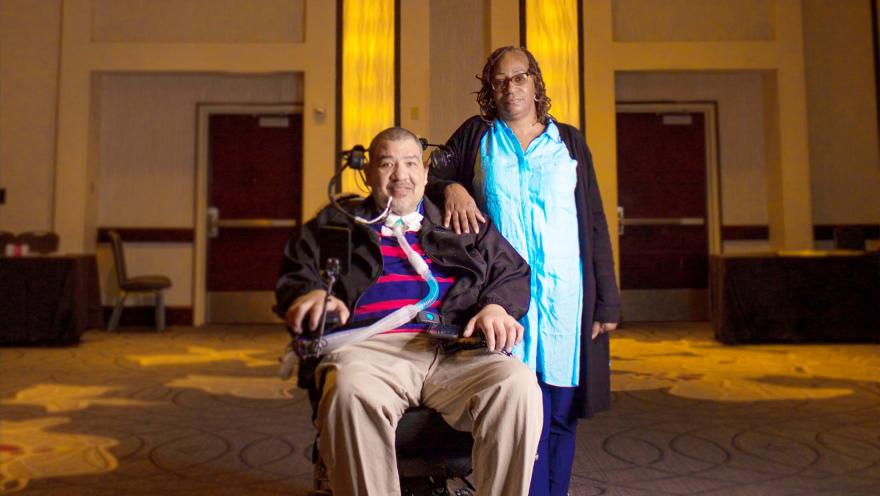A committee convened by the Institute for Clinical and Economic Review voted overwhelmingly on August 19 that oral edaravone and AMX0035 provide meaningful clinical benefit to people with ALS and have a positive impact on quality of life, but that neither drug provides sufficient value to justify the presumed cost to insurers.
ICER presented its analysis, which is based on flawed and discriminatory cost data, to the Midwest Comparative Effectiveness Public Advisory Council (CEPAC), an advisory committee of 15 health care experts convened by ICER. That analysis could be used by insurers to restrict access to drugs that have been approved to treat ALS.
Following the meeting, ALS Association President and CEO Calaneet Balas issued the following statement:
"People living with ALS need new treatments now. We are concerned that the approval of this report will reduce access to care and negatively impact the development of urgently needed drug therapies for people living with ALS. The report relies on quality-of-life data that discriminates against people with disabilities and lacks real-world data on the costs of living with ALS in the United States. ICER needs to be more careful about the cost data it uses in its analyses.”
Before the committee cast a series of votes on cost-effectiveness, Calaneet Balas, president and CEO of The ALS Association, Scott Kauffman, chairman of The ALS Association’s Board of Trustees and ALS advocates Sunny Brous and Steve Kowalski addressed the panel.
“It is absurd to determine the value of life for Americans who suffer serious disability by surveys of people who know nothing of ALS or its challenges. Those data are simply not inclusive, and not generalizable to the Americans with ALS that you are hearing about today,” Balas said.
Kowalski, who was diagnosed with ALS in 2017, urged the committee not to set up access barriers.
“At the end of the day, I’m a guy fighting ALS with every tool available to me to stay alive and functioning as long as I can. In terms of approved treatments, that current toolbox is severely limited. ALL stakeholders in the ALS community work tirelessly every day to change that,” he said.
“I will not be discriminated against because of a disease that has afflicted me and my family. Innovative treatments that slow or stop progression seems to be the current research trend. Making ALS a livable disease will only be possible with access to these treatments both approved and yet to be developed and approved.”
Brous, diagnosed with ALS in 2015, impressed upon the committee to avoid the trappings of a one-sized-fits-all model to assess the value of a drug to treat ALS.
“My disease progression is mine and mine alone,” she said.
“My ALS doesn’t look like Steve’s or any number of people you know in this community. There’s no one size fits all, no equation that balances the symptoms to lifespan.”
She also talked about the increased quality of life provided by an oral form of edaravone, describing an infection she developed through her IV port.
“It seems obvious to me, but for the sake of covering all the bases, it should be recognized that there is value to the oral drug that is not highlighted in this review, yet can make a big difference in my quality of life,” she said.
Kauffman, while noting the discriminatory nature of one of the ways ICER determines quality of life, expressed concern about the potential impact of ICER’s review.
“The methodology, which is flawed in so many ways, will result in a report that will be used by private and public insurers to determine access to new ALS drugs that can extend the quality of life. Its report will be used to decide who gets new ALS drugs and what prior authorization barriers must be overcome,” he said.
“I am concerned that this report and its recommendations will create more obstacles to accessing treatments that can have meaningful impact on the lives of people living with ALS now.”
For more information on the ALS Association's efforts to ban the use of discriminatory value assessments that limit access to ALS drugs, please visit als.org/icer. ICER’s final report is due Sept. 19.

